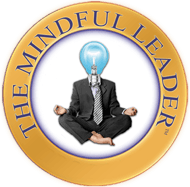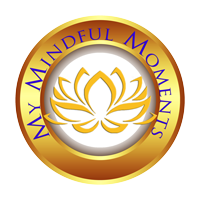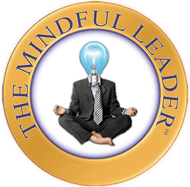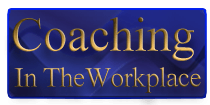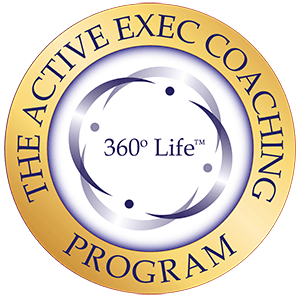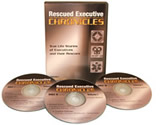Forgiving yourself is an extremely valuable tool on your journey to being the best version of yourself. This goes hand in hand with personal accountability for your portion of responsibility in whatever situation you’re dealing with. True healing takes admitting at least your part in whatever is happening while also recognizing the other person’s part, and remembering that none of us are perfect. As a mindful leader, it is part of your duty to pay attention and be aware of each side of the story as much as you can. Sometimes it takes a little time and inner work to get there, but with practice, you can get there almost instantaneously if you focus. Let’s explore how forgiving yourself will ultimately make you a much stronger, wiser, and more patient and understanding individual.
One of the first things to realize is that many of us tend to beat up on ourselves about what we’ve done wrong for much longer than is necessary, which creates an inner environment that opens you up to people taking advantage of you because they know they can do whatever they want, but you’ll take the blame and responsibility for it... because that’s just the good-hearted type of person that you are. Having said that, this gives you all the more reason to develop a healthy and appropriate length of time to process your portion of responsibility rather than moving into martyr mode.
Your inner critic can be very noisy and – quite frankly – a nuisance until you practice mindfulness and self-awareness and recognize that this is all just part of being human. None of us are perfect, and keeping this in mind allows you to forgive yourself as well as others much more quickly. Love yourself despite your mistakes, and keep them in perspective by taking a bird’s eye view of the whole situation rather than just the piece of it that you feel is your fault. Remember that the best thing you can do for yourself is learn from the experience and move on. Dwelling in guilt, shame, and fear is actually unhealthy and detrimental to your effectiveness as a person, the message you have to share, as well as eating away at your sense of self-worth, so why make life more difficult for yourself through this kind of subconscious self-programming?
On that note, let’s take a look at a few things you can do to help you forgive yourself and move on to solutions and lessons learned, that way you have the tools to handle things in a more constructive way later, as well as being unlikely to make the same mistake again.
Elements of Self-Forgiveness to Keep in Mind
· In order to make the most of your self-forgiveness, it’s a good idea to begin from a place of calm and peace, preferably where you remember that you are (and deserve to be – we all do) loved unconditionally. Whether this unconditional love comes from yourself, your spirit or inner being, or an individual that is close to you, tap into that feeling of being loved unconditionally. This is the foundation.
· Next, remember your strength and positive attributes or traits. Are you patient? Understanding? Wise? Practical? This could be anything that you love about yourself and can remember demonstrating at some point or another in a life situation. These are things you know to be true and can be confident in, which in turn will make it easier to admit fault that is actually yours, forgive yourself, and move on.
· Remember to look at the situation in context and take full responsibility for whatever it is that you need to forgive yourself for. If it was a simple mistake involving your skills, then there’s no need to beat yourself up over it. Simply learn from the mistake, correct it if you can, and do better next time. If it was a moral conflict, make sure that you feel appropriate guilt and shame, but no more. Nursing these feelings can open you up to all kinds of problems later on, so don’t prolong the healing process unnecessarily.
· Pay close attention to the parts of your experience that are especially painful, as this is where deeper healing takes place. Look at what happened and feel the pain and guilt, but imagine yourself shining a loving light onto it and realizing that, without doing this, you are much more likely to get stuck in the negative cycle of beating yourself up over it.
· Take responsibility for your part in things and acknowledge the aspects of the situation that you aren’t responsible for. Then consider what you’ve done already to try to rectify the situation, and do anything else that you feel you must in order to mend fences. If you’ve already done everything in your power, then the rest is outside of your control and there’s no point in dwelling on it more. At that point, it’s senseless and does more harm than good. If there’s more that you can do, then do it – not only for the other person involved, but also for yourself. Knowing you’ve done everything you could will help you to learn from the experience and move on.
· That brings me to the idea of learning everything you can from the situation and then releasing it. Letting go of trying to control the outcome of the situation will allow you to move on and do better the next time you’re faced with a similar situation.
Be honest with yourself and do what you can, but don’t allow your inner critic or self-deprecating thoughts to lull you into a false sense of over-responsibility. No one human being is required to carry the weight of the world, but if you continuously don’t forgive yourself, then it may very well feel like you have the world on your shoulders. This feeling can become crippling over time; the more weight you add with every misstep or mistake, the heavier your burden will be. This infringes very much on your ability to help others, and as a mindful leader, this will likely have a ripple effect on every area of your life.
I hope that these ideas help you to reach a place of forgiving yourself much more quickly. One of the most important aspects is to feel the feelings you feel, acknowledge them, and then let them go so that you can move on to do much better in your life as a whole. This is part of the work that allows you to be better than you were the day, week, or even month before, and oftentimes, steps and layers are required in order to fully reach this peace. You can only work your way from one step to the next; there’s no jumping up the entire staircase to reach the top without learning the lessons you learn along the way. Abraham-Hicks refers to this as being ready to be ready to be ready... because you can’t get there from where you are without taking the steps necessary, and life tends to lead us to exactly the steps we need for growth and inner peace... usually with absolutely perfect timing (whether we can see it in the thick of it or not).
Thank you so much for joining us today on the Mindful Leader Blog! I hope you’re having a wonderful week, and please come back next week for another article about forgiveness.
To learn more about the Mindfulness Movement and the International Mindfulness Federation, please visit:
http://executivecoachinguniversity.com/mindfulness-movement


